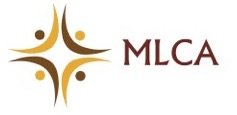Initiated by a US physician and mom, The Fed is Best Foundation is a non-profit, volunteer organization of parents and health professionals who study the scientific literature on infant feeding and the experiences of mothers through clinical practice and social media connections. The foundation's website - www.fedisbest.org is an eye-opening experience, detailing, among other things, a variety of tragic stories, the outcome of which, according to the information provided, could have been avoided.My first response after reading these tragic stories was one of heartbreak and confusion. It’s hard to believe that despite all the advances in medical and breastfeeding care, that there can still be devastating outcomes for the very ones we care so deeply about – breastfeeding babies and their families.The outrage and call to action by these families, is understandable and necessary. I’m addressing it today because I know that none of us would ever, ever want to be involved in a situation where our actions contributed in any way to an outcome such as those described on the Fed is Best website. These cases represent a huge breakdown in our healthcare system, and we would be wise to contemplate ways in which we might personally do better in order to eradicate these outcomes. This is not to imply that there was anything in the stories that pointed directly to an International Board Certified Lactation Consultant (IBCLC), but as MLCA's Chapter President, I wanted to reflect on the importance of our role in general, when it comes to the care of breastfeeding families.I would like to suggest the following four strategies in order to provide the best care possible –1. LISTENIt’s simple to say, sometimes hard to do. You’ve heard some things over and over, to the point that maybe you tune out what a mom is trying to tell you. Make a renewed commitment to listen well – it’s the core of good communication. Put aside the thoughts of what you want to say next, and give your full attention to the person talking. Ask for clarification and reflect back to the other person to make sure you’ve gotten the message.2. COLLABORATEThere sure is a lot of talk in healthcare about collaboration, but is it actually happening? IBCLCs are in a unique situation in that we care for two individuals, usually with separate healthcare providers. We have a professional obligation to communicate with these providers, with parent’s permission - particularly in complicated cases. You are the expert in terms of breastfeeding – don’t be afraid to share your knowledge and insight. You are an important part of the healthcare team. One way to enhance collaboration is to reach out to the providers in your community. Find opportunities to meet with providers – get to know them and let them get to know you. Let’s face it; there are some common misconceptions about lactation consultants. Taking time out to introduce yourself, and to talk about your background and experiences, will go a long way in garnering support and respect, and this will undoubtedly improve outcomes for the families we serve.3. KEEP UPI know we’re all busy people. Most of us are struggling to balance our work and family lives, and staying on top of the latest research can be a challenge. But we need to make time. There are breastfeeding conferences, online educational opportunities, websites, social forums, journals, podcasts and of course, membership in professional organizations. It’s just not enough to rely on your own personal and professional experiences - you have to continue the quest for learning. Ask yourself this – “When was the last time I read a research article?” Take a look at the research articles cited within the Fed is Best accounts. Did you know about them? MLCA will be working on ways to support you in this endeavor as we develop plans to highlight and communicate some of the latest research.4. GET INVOVLEDConsider becoming involved at a higher level. IBCLC professional organizations range from the International Lactation Consultant Association (ILCA-International Level), United States Lactation Consultant Association (USLCA – national level) to the Massachusetts Lactation Consultant Association (MLCA- state level). And there are other organizations that support breastfeeding families as well. Think about becoming a member of one or all of these organizations in order to receive and give support to other IBCLCs and lactation professionals. MLCA is currently working towards licensure of IBCLCs – an endeavor, which we believe, will allow more mothers to receive the expert lactation care they need.Most of us have dedicated our life’s work to understanding how breastfeeding works – or sometimes doesn’t work. We live by the motto, “first feed the baby.” That in no way changes our core understanding that a mother’s own milk is best for her baby. If she doesn’t have milk, for whatever reason, we know that breast milk substitutes are indicated and we recommend and use them in such situations.As this campaign so pointedly reminds us, we work with an extremely vulnerable population. We all want what's best for families, moms and especially babies, and most assuredly we want to “first do no harm.” I urge you to visit The Fed is Best Foundation's web site and see for yourself what the organization is all about, and how you, as a health care professional can expand your awareness of the issues the foundation is dedicated to address. To the IBCLCs of Massachusetts, I thank you for your dedication to your profession, and I applaud the work you do every day to ensure safe, quality lactation care.

